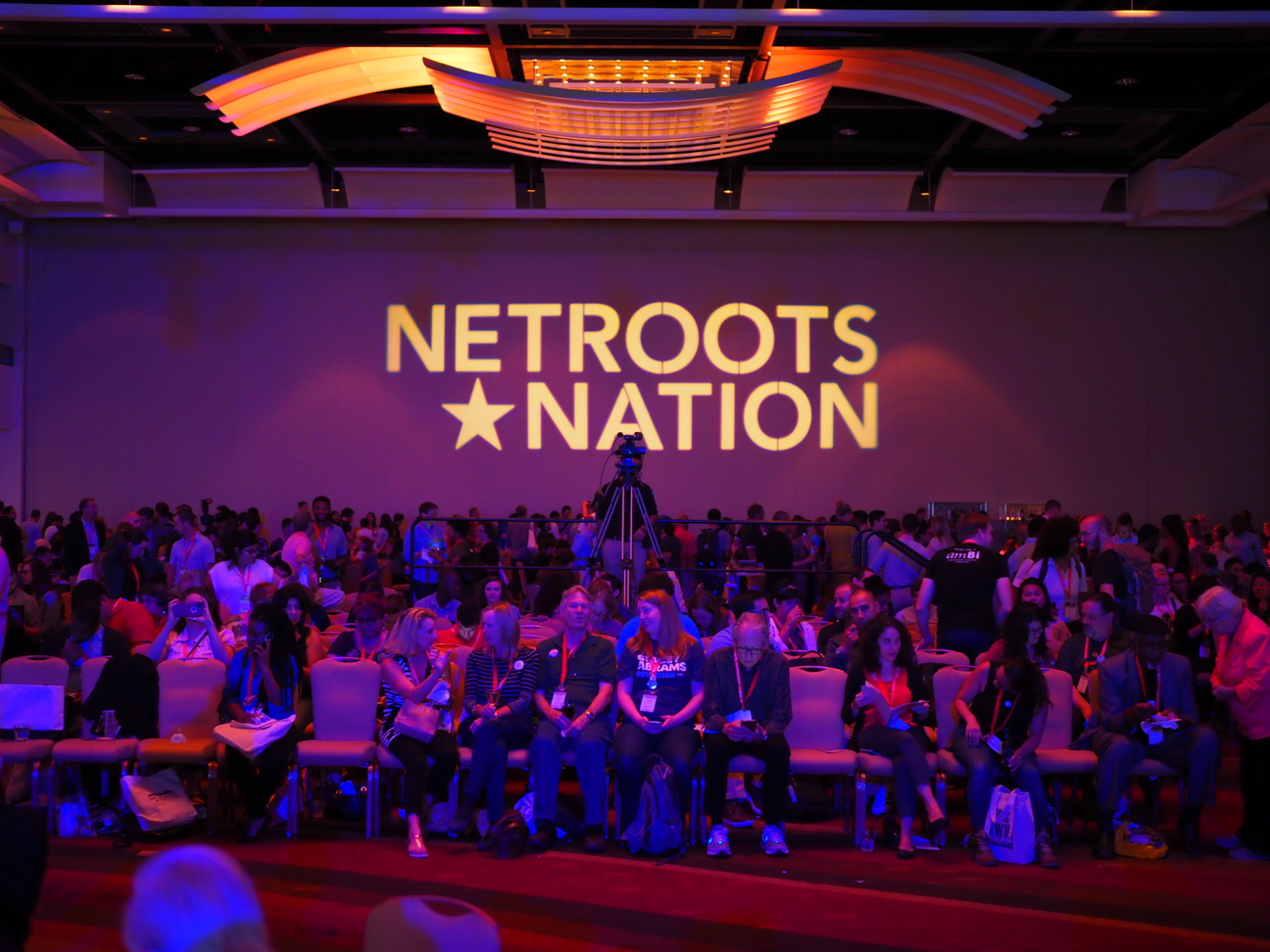Good afternoon, and welcome back to NPI’s live coverage of Netroots Nation 2017, taking place in Atlanta, Georgia today through this coming Saturday.
Netroots Nation is America’s largest annual gathering of progressive activists, advocacy journalists, and grassroots organizers. NPI has had a presence at every Netroots Nation conference, going back to 2006, when the convention was known as YearlyKos. (The name was changed in 2008.)
Each year, Netroots Nation traditionally brings conventiongoers together for the first time for an opening night plenary session, where attendees hear from distinguished elected leaders, entrepreneurs, and activists. Tonight’s plenary session features a diverse array of speakers with powerful stories to tell.
As the session unfolds, we will be offering periodic live updates. You can also follow along from home yourself by going to Netroots Nation’s Facebook page.
Rev. Angel Kyoto Wiliams kicked off the plenary session by asking attendees to think about what motivates them personally. She emphasized the importance of sustainable practices for prolonged activism, asking each participant to reflect upon their motivation for activism and what matters to them. Williams challenged audience participation to find specific and personal causes of motivation.
Next to take the stage was Arshad Hasan, the Chair of the Board of Directors of Netroots Nation. Hasan explained to new attendees that Netroots Nation is actually two organizations: the 501(c)(4) organization that organizes the convention, and the Netroots Foundation, a 501(c)(3) charitable organization which supports the work of the progressive community through initiatives like Win the Internet.
Hasan then relayed the sad news that Netroots Foundation Chair Joel Silberman is unable to attend Netroots Nation this year due to having recently been diagnosed with pancreatic cancer (which he is undergoing chemotherapy for). Silberman did, however, record a message of welcome, in which he talked about his cancer diagnosis, his treatment, and his hopes for this year’s Netroots Nation.
Silberman credited the quality healthcare he’s receiving to the work of progressive activists, explaining he believes he would not be alive today otherwise.
Progressives have accomplished much together (the Patient Protection Act, marriage equality, net neutrality), but our values, principles, and policy directions are now gravely threatened by a right wing regime that Silberman says is trying to “divide, distract, and discourage” us. Netroots Nation must respond by committing to “unify, focus, and organize,” Silberman declared.
Let America Vote President Jason Kander was next to address the convention.
He began his speech by talking about the circumstances that led to the creation of this memorable ad. Kander explained that during his campaign for the U.S. Senate in Missouri, he wore the NRA’s “F” rating of him as a badge of honor.
Kander noted that although he lost his Senate bid, his candidacy is nevertheless evidence that voters respond enthusiastically when the Democratic Party fields unaplogetically progressive candidates. Kander significantly outperformed Hillary Clinton in the Show Me State, earning support from many Missourians not as progressive as he, but appreciative of his his honesty and integrity.
Kander further noted that in his 2012 campaign for Secretary of State (which he won), he was able to attract support from voters despite being vocally opposed to voter ID schemes. Even voters who disagreed with him about that were willing to vote for him because they were drawn to him as a Democrat with integrity.
Kander finished his speech by talking about his friendship with Salam, a Muslim American from his hometown of Kansas City.
Kander recollected that he had been told not to advertise or tell fellow servicemembers about his Jewish faith, and that he ultimately decided to ignore that admonition and tell his buddy Salam that he was Jewish — only to find out that Salam had known all along, as his family had a connection to Kander’s family.
We can’t be afraid to be ourselves, Kander concluded.

